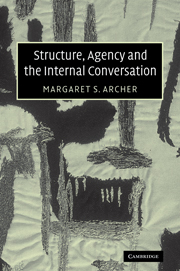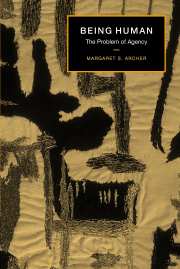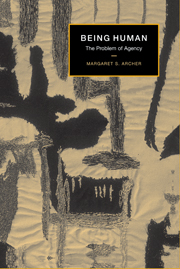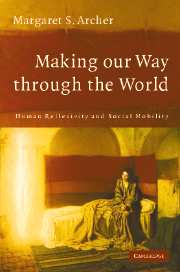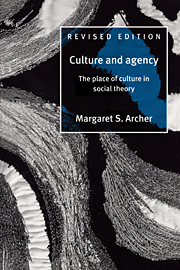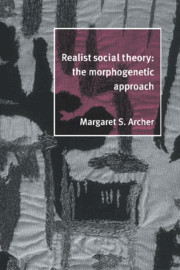Structure, Agency and the Internal Conversation
A central question of social theory is: How do society's objective features influence its members to reproduce or transform society through their actions? This volume examines how objective social conditioning is mediated by the subjective reflexivity of individuals. On the basis of a series of in-depth interviews, Margaret Archer identifies the mediatory mechanism as "internal conversations" that are expressed in forms governing agents' responses to social conditioning, their individual patterns of social mobility, and whether or not they contribute to social stability or change.
- Offers an original solution to the problem of reconciling structure and agency in human lives
- Combines cutting edge theory with groundbreaking empirical research
- The fourth volume in a series of books by a leading international theorist that has mapped out the significance of realist social theory for contemporary society
Reviews & endorsements
'… a richly rewarding book … Archer has given us, again, a good number of ideas to think with and about.' Journal of Critical Realism
Product details
September 2003Paperback
9780521535977
384 pages
228 × 154 × 26 mm
0.604kg
1 table
Available
Table of Contents
- Introduction: how does structure influence agency?
- Part I. Solitude and Society:
- 1. The private life of the social subject
- 2. From introspection to internal conversation: an unfinished journey in three stages
- 3. Reclaiming the internal conversation
- 4. The process of mediation between structure and agency
- Part II. Modes of Reflexivity and Stances Towards Society:
- 5. Communicative reflexives
- 6. Autonomous reflexives
- 7. Meta-reflexives
- 8. Fractured reflexives
- Conclusion: personal powers and social powers.

